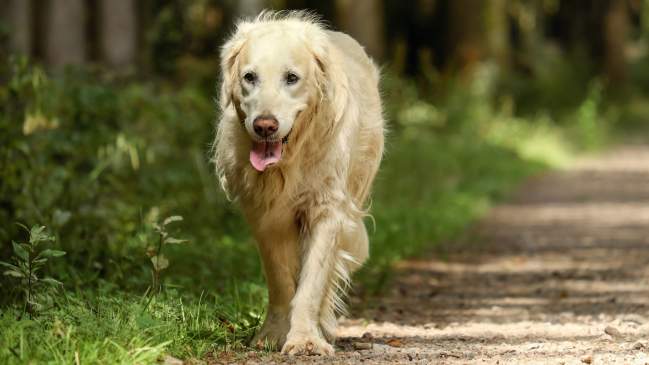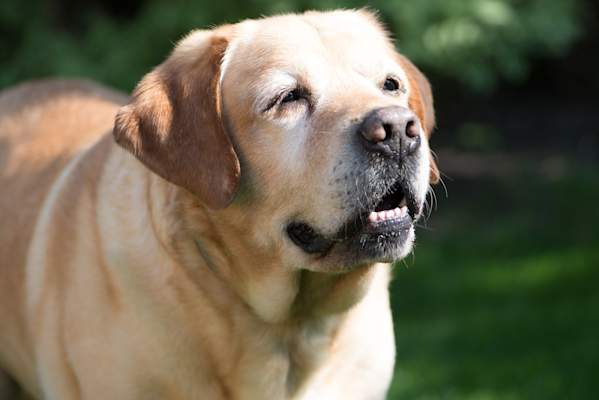It's no secret that it can be hard to watch your pup grow old. Pets are family and we want them with us as long as possible.
Aging is a natural occurrence for all living things, and unfortunately, one that you cannot control. While you might eventually begin to take shorter walks or slow down on outings, you can still provide your senior dog with a happy lifestyle as they age.
The way to best care for your aging pup will change through the years. Here’s what you should know about caring for your senior dog.
How to take care of your older dog
1. Keep your aging dog active
One of the most important things for pet parents to do is to continue to give senior dogs opportunities for exercise. While your pup may not be able to do the two-mile walks of their youth, they will enjoy and benefit from a walk around the neighborhood.
Regular exercise is essential for your dog’s physical health. Taking two shorter walks each day is very helpful for older dogs to maintain joint health and decrease the risk of arthritis.

2. Focus on brain games
While physical exercise is important, senior dogs need mental stimulation as well.
Consider giving them a treat puzzle or other interactive dog toy to keep them occupied.
And despite the saying, you can teach an old dog new tricks. In fact, you may find that working with your older dog (who is likely closely bonded with you and calmer now) may be easier to teach than a younger pup.
Dogs love interacting with their people, and teaching tricks is a great way to engage an older dog.
3. Think about changing foods
Dogs need different nutrients (and amounts of nutrients) depending on their age and activity level.
There are many considerations to keep in mind when changing up your aging dog’s diet. Senior dogs typically require fewer calories, so, you may have to use lower calorie treats in addition to switching to a senior dog food. Many pet parents even decide to start cooking for their dogs to meet specific health needs as they age.
It can also be helpful to add a supplement to your dog's diet, particularly one that supports healthy hips and joints.
4. Support mobility and independence
You'll likely notice your senior dog begin to slow down with age—they might have trouble jumping up on the bed or sofa. Adapting to your dog’s changing mobility can help keep them as mobile as possible.
Senior dogs may need orthopedic beds to support their aging bodies, and for some breeds, a taller, memory foam bed can be useful to help them come to standing after a long snooze.
Stairs can also become challenging. Your dog may need to be carried or helped up and down stairs. There are many types of harnesses that can help; or you can use a towel around your dog’s mid-section to assist with stair climbing. There are also many types of ramps available to help pets get on and off furniture.
5. Change up your dog’s grooming routine
Talk to your groomer about any concerns you may have regarding your senior dog's care. For instance, a big fluffy dog may be more comfortable getting a close trim over the summer; a thin-haired pooch might want a winter wardrobe.
Toenail trimming can be tricky with older dogs, too. Long nails can be a real hazard for a senior dog’s mobility, so a regular visit to a groomer can help.
What’s more, regularly trimming the hair between the pads of your dog’s paw can help prevent your dog from slipping on hardwood and tile floors.
And, like people, dogs that look better, feel better.
6. Consider alternative therapies
In addition to regular visits to the veterinarian and groomer, your senior dog may benefit from complementary therapies.
Acupuncture and chiropractic care can be very helpful to keep senior pets mobile and healthy. Many vets, as well as other practitioners, offers these services.
Speak up at your senior dog’s next vet visit to get an expert’s perspective on whether alternative therapies may help your pup age gracefully.
Help your senior dog live their best life
Your senior dog deserves a knowledgeable and kind family who can give them what they deserve. Following these steps can help you care for your aging dog and give your senior pup everything they need to live a long, happy life.
